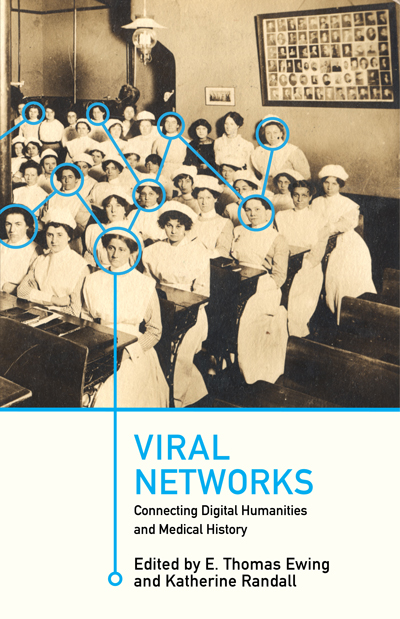JARS v38n1 - Orlando S. 'Lanny' Pride
Orlando S. "Lanny" Pride
David G. Leach, North Madison, Ohio
Reprinted from Middle Atlantic Chapter newsletter.
One of America's best known and most beloved plantsmen, Orlando S. Pride, died at the age of 78 on October 25, 1983 in Butler, Pennsylvania.
Lanny Pride, as he was universally known, was a graduate in landscape architecture from Pennsylvania State University, a nurseryman since 1928 and a remarkably productive breeder of azaleas, rhododendrons and hollies for most of his 55-year professional career.
Perhaps his finest achievement among many splendid hybridizing successes was his group of persistent-leaved azalea hybrids. They expanded northward by as much as 500 miles the region in which "evergreen" azaleas are consistently satisfactory flowering plants in the eastern United States. Starting with the hardiest of the hybrids produced by his friend, Joseph Gable, Lanny eventually grew 100,000 seedlings in the severe zone 5b climate at Butler to produce the 50 cultivars described by Frederic P. Lee in The Azalea Book . 'Marjorie', 'Nadine', 'Vicky' and 'Mary Holman' are among the best known in this, the hardiest of all categories of persistent-leaved hybrid azaleas. They survived the -30° which marked the devastating winter of 1963. Vic-Nor Farm at Connoquenessing, Pennsylvania features a planting of 3,000 Pride hybrids which is open to the public in their blooming season.
As he reached his goals in breeding "evergreen" azaleas, Lanny turned his attention more and more to rhododendrons. Selecting always for the exacting cold hardiness required to flower consistently in the Butler County foothills, Lanny named 25 hybrids by 1978 and described them as the best and most cold tolerant from the multitude of seedlings he had grown. Many of them were derived from this author's introductions, but the Pride hybrids stand on their own merits, with distinctive colors, conspicuously fine foliage and growth habit, and extraordinary hardiness among their characteristics. 'Blazen Sun', a brilliant orange-red with large trusses, is plant-hardy to -28°; 'Charles Robinson', clear pink, is bud-hardy to the same subzero degree; 'Cloud 12' is one of the best of the super-hardy whites. Some of the finest Pride rhododendrons flowered after Lanny retired from the nursery business in 1975, and, with one exception, they have not been propagated and disseminated as they deserve. Nine which were tested at Butler for more than 20 years are still familiar mainly to hobbyists, a circumscription which is not likely to continue as they become known to professional growers.
Lanny's preoccupation with rhododendron breeding extended as well to deciduous azaleas. His goals differed from those of other hybridizers. He strove to produce densely foliaged, mildew resistant hybrids, free blooming, with bright, clear colored flowers regardless of size, which would make sturdy, showy plants for landscaping. His approach to the crosses he made was largely instinctive, and largely sound, as shown by his results: 21 hybrids fulfilled his aims and were named. Among the best are 'Pink Peppermint', 'Yellow Bird' and 'Coral Queen'. They can be grown almost anywhere that the climate permits azaleas to be grown at all. Many of them are heat resistant as well as 25-below-zero hardy.
Lanny was an organizer and charter member of the American Holly Society, a response to the work he had already done in producing the well known Grace grex of Ilex opaca intraspecific hybrids. Starting with plants of the American holly which he collected at their northernmost, highest elevation distribution in West Virginia, he spent 40years and grew 20,000 seedlings to produce from them a series of hybrids which far exceeded in hardiness the clones more common in commerce. After the ferocious winters of 1963 and 1976 the Pride hybrids were virtually untouched in zone 5a and colder northeastern gardens, whereas the older, established and best known clones then in the nursery industry were decimated. His selection of Ilex crenata 'Green Luster' is a best seller in the trade, and another, 'Tiny Tim', is widely grown.
The Pride Nursery at Butler had a reputation throughout the eastern United States as a reliable source of rare and unusual plants, and new introductions in many genera. Lanny was in the classic tradition of the scholar-growers, Henry Hohman and Henry Kohankie, with the same values and priorities as the celebrated contemporary British plantsman, Harold Hillier. Any novel or distinctive, and also superior plant captured immediately his urge to grow it and to make it available for gardeners to enjoy. A profit prospect, if it existed, was not important to his motivation.
Lanny was both a supporter of, and a benefactor to the Great Lakes Chapter of the American Rhododendron Society. He was a founder of the Chapter, and served it as President, as a member of many working groups, as a faithful exhibitor at shows, as a judge and in the establishment of the test and display gardens at Wooster, Ohio. In 1979 he received the Society's Gold Medal, the last and most highly valued of many awards, which included the Certificate of Merit of the Pennsylvania Horticultural Society; the Award for Outstanding Contributions to Horticultural Research of the American Horticultural Society; the highest award of the International Plant Propagators' Society; the Nurseryman of the Year honor from the Pennsylvania Nurserymen's Association; and the Distinguished Alumnus Award of Pennsylvania State University for "international renown in specialized research and development of prize winning ornamental plants."
Few have contributed more greatly to their fields than did Orlando S. Pride. The gentle man of generous heart, so learned in his profession but modest and self-effacing, is gone. He was a man of good will. His last months were a burden; he died of cancer. His ailing wife, a son, a daughter and two sisters survive him.
